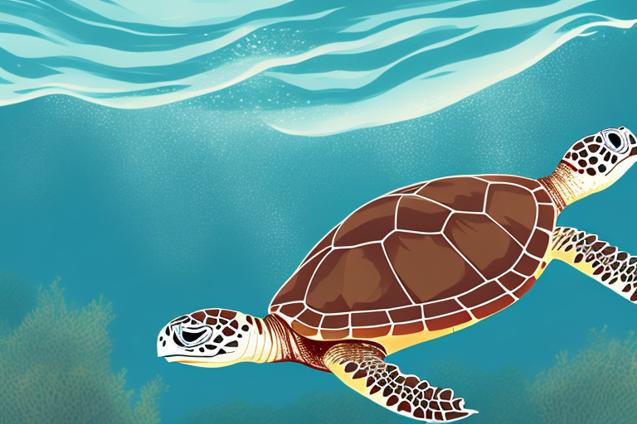
Discover the impact of plastic pollution on marine life and the ocean, and how sailors and ocean enthusiasts can reduce their plastic footprint to protect the environment we cherish.
The Dangers of Plastic Pollution in the Ocean
Welcome to our unique and adventurous website, dedicated to those who are leaving the rat race behind, purchasing a boat, and setting sail to explore the world with their families. Our site is a comprehensive resource for all things related to this lifestyle, providing practical advice, personal stories, and insightful guides to help our readers navigate this exciting journey.
As sailors and ocean lovers, we have a responsibility to protect the environment we so deeply cherish. In this article, we will discuss the dangers of plastic pollution in the ocean and provide practical tips on how we, as a sailing community, can reduce our plastic waste and contribute to a healthier ocean.
The Scale of the Problem
Plastic pollution is a global issue that affects every corner of our planet. It is estimated that 8 million metric tons of plastic waste enter the ocean each year, and this number is expected to increase if we do not take action. To put this into perspective, this is equivalent to dumping a garbage truck full of plastic into the ocean every minute.
The majority of this plastic waste comes from land-based sources, such as littering, poor waste management, and industrial activities. However, a significant portion also comes from marine-based sources, such as abandoned fishing gear and recreational boating activities.
The Impact on Marine Life
Plastic pollution poses a significant threat to marine life, as it can cause entanglement, ingestion, and habitat destruction. Here are some of the ways plastic pollution affects marine life:
Entanglement
Marine animals, such as sea turtles, seals, and whales, can become entangled in plastic debris, such as discarded fishing nets and plastic bags. Entanglement can lead to injury, impaired movement, and even death.
Ingestion
Many marine animals mistake plastic debris for food, leading to ingestion. This can cause blockages in their digestive systems, leading to malnutrition, starvation, and death. Ingested plastic can also release toxic chemicals into the animal’s body, causing further harm.
Habitat Destruction
Plastic pollution can smother and degrade marine habitats, such as coral reefs and seagrass beds. This can lead to a loss of biodiversity and a decline in the overall health of the ecosystem.
The Impact on Human Health
Plastic pollution in the ocean also poses a threat to human health. As plastic debris breaks down into smaller particles, known as microplastics, they can be ingested by marine animals, which then enter the food chain. This means that humans who consume seafood may also be ingesting microplastics and the toxic chemicals they contain.
The long-term effects of microplastic ingestion on human health are not yet fully understood, but there is growing concern that it could lead to a range of health issues, including hormonal disruption, immune system suppression, and even cancer.
Reducing Plastic Waste: What Can We Do?
As sailors and ocean enthusiasts, we have a responsibility to minimize our plastic waste and protect the marine environment. Here are some practical tips on how we can reduce our plastic footprint and contribute to a healthier ocean:
Choose Reusable Items
One of the most effective ways to reduce plastic waste is to choose reusable items over single-use plastics. This includes:
- Using reusable water bottles and coffee cups
- Bringing your own reusable bags when shopping
- Using cloth napkins and towels instead of paper products
- Choosing reusable food storage containers and beeswax wraps instead of plastic wrap
Recycle Properly
When it comes to recycling, it’s essential to know what can and cannot be recycled in your area. Familiarize yourself with local recycling guidelines and ensure that you are recycling all eligible materials. Additionally, make sure to clean and dry your recyclables before placing them in the recycling bin, as contaminated items can cause entire batches of recyclables to be rejected.
Participate in Beach and Marina Cleanups
Joining beach and marina cleanups is a great way to help reduce plastic pollution in the ocean. Many organizations and communities host regular cleanups, so keep an eye out for events in your area. You can also organize your own cleanup with friends and family.
Support Ocean Conservation Organizations
There are many organizations working tirelessly to combat plastic pollution and protect our oceans. Consider supporting these organizations through donations, volunteering, or simply spreading the word about their efforts.
Be Mindful of Your Fishing and Boating Practices
As sailors, we must be mindful of our fishing and boating practices to minimize our impact on the marine environment. This includes:
- Properly disposing of fishing gear and other waste
- Using biodegradable fishing lines and nets
- Avoiding the use of plastic bait bags and containers
- Ensuring that your boat is well-maintained to prevent pollution from leaks and spills
Conclusion
Plastic pollution in the ocean is a pressing issue that affects marine life, human health, and the overall health of our planet. As sailors and ocean lovers, we have a responsibility to do our part in reducing plastic waste and protecting the marine environment. By making conscious choices, participating in cleanups, and supporting conservation efforts, we can help create a healthier ocean for future generations to enjoy.